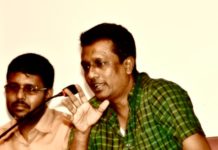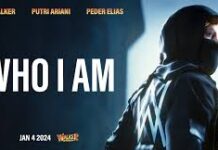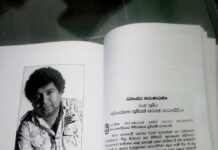Mahesh Hapugoda
The classical modern society is mainly characterized by the notion of differentiation. It established important boundaries and distinctions that could make individuals, gender, classes, societies and communities different from each other based on the existing level of evolution and advancement. When the advanced Capitalistic societies stepped into the stage called ‘postmodernism’, it is observed that there is a clear collapse in the modern boundaries. Since education was considered the chief agent of cognitive change of an individual in the process of evolution to an advanced stage of rationalism and higher moral being, in a Kantian sense, it became the most esteemed social component promoted under modernity. In the postmodern era, there is no differentiation mechanism in place but de-differentiation where all the ‘differed characteristic’ are fast dissolving between individuals and societies. Consequently, since commoditized education is no longer a key requirement of either cognitive nobility no social mobility, its social legitimating potential is also fast disappearing. Hence, an educator may practically be unable to use education itself as a motivating factor to promote learning and acquisition of rational knowledge. The sign- value of the present commodity culture where new norms are constituted to demarcate prestige, power and way of life; images that are constantly proliferated through digital media not only further distances the rational relationship between education and social identity but cuts off the requisite connection between individual and real world. After three challenging decades when Sri Lanka embraced global Capitalist mode of economy and when there is a great fear now that the quality of secondary and tertiary education are deteriorating, this paper studies how the new values and trends that operate in the commodity culture function as serious de-motivating factors in the pedagogical mechanism that either needs serious revision or we, as a community, have to rethink of the strategies in which we propagate the way of life inadvertently devaluing intellectual paradigms in the market economy.
Key words: The Postmodern Break, Auto-Modernity, Knowledge, Commoditized Education, Digitalized and Virtualized Identities
(This article was first published in ‘Essays in Social Sciences: Modelling Social Phenomena in the 21st Century’ (Prof. Dayananda Somasundara memorial journal 2012) edited by Prof. Herath Madana Bandara and Mr. K.R.H.L Gunasekara, Godage Publishers, Colombo ISBN 978-955-30-3226-3)
Introduction:
‘A Human being can become human only through education. He is also nothing but what education makes of him’ (Immanuel Kant)
The above Kantian statement can perhaps be considered the main driving force behind the civilization process of modernity in which he implies that education, as a fundamental pedagogical position, is imperative to the development of the mankind. Once the humanity is trained the ‘dictate of reason from an early stage’ (Kant: 1963, 10), according to Kant, it generates freedom which all human beings desire. It should invoke all the natural gifts of man that may lead towards truth through which humanity can attain its perfection. It should aim at enhancing human nature towards a possible cosmopolitan spirit and good education is capable of ‘bringing about a gradual improvement in the world’ (Kanz: 1999, 793).
Therefore,‘children must not be educated simply to achieve the present level but towards a possible better future level of the human race, in other words taking account of the idea of mankind and the universal destiny of man’ (Kant: 1963, 14).
It is a long term endeavor which will consume the hard labor of a several generations. According to Kant, education is ‘therefore, the greatest and most difficult problem with which man can be confronted, since insight depends on education and education in its turn depends on insight’ (p. 13). Here, Kant establishes a strong bondage between education and political activity, since he believed that ‘the art government and art of education’ (Ibid, 14) are the two most difficult human inventions in the journey towards a totality and perfection of human kind.
However, according to some key Western philosophical traditions from existentialism to postmodernism, it is believed that, until today, we have never lived in such an uncertain world, a world which is on the verge of collapse, a collapse that would be absolute in such an interrelated world as ours. The end that we are gradually reaching is no longer a rhetorical one or a religious damnation but a crisis about the very existence of ours and the interrelationship that we try establish with each other. That crisis begins with our values system where there is no pragmatic legitimacy of its socio-cultural application. We are distressed by the fact that we fast experience the further widening gap between what is taught (or to be taught as in the texts) and its absolute inapplicability to the real living contexts. We are also bewildered to find increasing evident that there are more and more things that should be taught and even more and more students are unable to learn them or even comprehend the interest that their studies hold. The relationship between knowledge and power has disappeared and there arises a greater query of the position of knowledge in ‘the modern project’ as Enlightenment’s emancipatory impulse. With the de-legitimation of scientific knowledge and its emancipatory potential is thoroughly questioned, the role of higher education and university research is forced to be rethought. The fundamental theoretical questions in front of us without answers are what learning means, what is to be transmitted and to whom. The greatest condition that the modern educationists have to work with is Lyotard’s popular hypothesis, “that the status of knowledge is altered as societies enter what is known as the postindustrial age and cultures enter what is known as the postmodern age” (Lyotard: 1984, 01). May be, the time has come that we have to accept the bitter fact that advance learning in the university education, from its modern sense, has come to end.
Facing postmodernism and changes in the high education have become one of the greatest challenges not only the advanced nations but even the developing nations have to cope with. The changes in the modern value system, digitalized and personalized media culture, human detachment from reality and living in the virtual, unlimited communication beyond space and time, de-politicization and the loss of authority are some of the phenomenal developments to mention. The key to this development, according to Robert Samuel, is the combination of technical automation and human autonomy (2007, 01). Application of the theories of the previous era to understand the ‘new individual’ seems completely irrelevant and illogical. To be precise, we can no longer base our analysis of culture, identity, and technology on the traditional conflicts between the public and the private, the subject and the object, and the human and the machine (Ibid, 01).
Samuel terms this new condition as ‘auto-modernity’ in which the combination of ‘human and machine into a single circuit of interactivity often functions to exclude the traditional roles of social mediation and the public realm’ (Ibid, 01). Individuals turn to their machines for association, relationships, search for information and communication totally detached from the society outside to him or her. So, this new form of seclusion does not demand the cognitive understanding required in socialization which appears to be the prime purpose of modern education. Therefore, for educators and public policy makers, this unexpected collusion of opposites represents one of the defining challenges for the twenty-first century (Ibid, 01). If education existed for the need of social mediation between self and other, under the new condition of self and machine, its function faces a legitimation crisis. At the same time, in the completely personalized digital space where you can choose anything without any moral guidance, the role of education as a moral guide is also technically defunct.
When there is no justification for its legitimacy, education and its institutes face an unavoidable extinction and, as an immediate remedy, those institutes are forced to undergo fundamental syllabus oriented pedagogical changes. Sri Lanka, as a classical example from the periphery, is also caught in this whirlwind of ‘shift’ in this global phenomenon. Without paying much attention to this development and its ideological implications both for and against, Sri Lankan universities too concentrate only on changing its years- old syllabus and other structural changes evolved even from its colonial inheritance. In a Sri Lankan context, due to the stagnating economy, the university graduates (especially Art and Humanities) could not easily find employment opportunities in the job market and the reliance on the university education as a mean of survival declines as a result. The High Education Ministry and the University Grant Commission press the university authorities to make quick reforms with theoretical and structural assistance through some expert agencies funded by the World Bank within the system to parallel the needs of the job market and the university output. The main argument behind those due reforms is that there is a mismatch between the theoretical knowledge offered in the education and the changes in the fast evolving global employment market. Realizing that education has become a profitable commodity capable of attracting both local and international crowd, Sri Lankan government is ready to make Sri Lanka the ‘knowledge hub in Asia’ as part of its policy manifesto to rebuild the nation under the banner ‘Wonder in Asia’.
Despite the country’s future aspirations to make education a ‘profitable industry’, the stakeholders such as students and teachers have shown an unwillingness to embrace education in a commoditized context and, in addition, the under-developed infrastructural elements in government controlled universities show that such transformation is not very easy to come by. Apart from that, the output of the school education also seems in a critical situation. For example, the G.C.E. (O/L) results of the last few years in Sri Lanka are also in decline. Especially, students score very little for science, mathematics and English (in the year 2009, science 45%, mathematics 51% and English 28% and in 2008 47%, 51% and 31% respectively[3]). The students who are selected for the Art stream in universities also do not turn up, since they either opt for professional courses or go for early employment opportunities. Low performance at secondary examinations, less enthusiasm for higher education, increasing number of school leavers, discouragement for ‘theoretical education’, promoting job oriented courses and disappearance of the university research culture are all strong indicators for what I am trying to define in this paper as the crisis of modern education or the de-legitimation of the modern intellectual paradigm. It is also true that socio-economic reasons do play a significant role in determining the above aspects but there is a great de-motivating element emerged through postmodern pedagogical approach (or the postmodern surrounding where the proliferated signs of the dominant market economy value nothing but consumerism). Since modern education failed to evolve to go with the digitalized youths and the ever widening division between what education institutes have to offer and what the students need further perish the harmony of advanced leaning and life world. So, this paper investigates the validity and applicability of modern intellectual endeavor under the new social-cultural transformations in understanding and facilitating the auto-modern digitalized youths.
The Postmodern Break and Knowledge:
The global restructuring of the capital brought about a greater transformation with rapid changes in economies and cultures. Subsequently, due to the process of postmodernization, ‘the tension between global and the local, the modern and the postmodern, and the old and the new, of increasing complexity, fragmentation, indeterminacy and uncertainty’ (Kellner: 2002, 287) are more and more visible all over the globe. In this context, the term ‘postmodern break’ signifies a shift in production; as Baudrillard distinguishes, in premodern societies production was organized around symbolic exchange, in modern societies around production, and in postmodern societies around ‘simulation’ which means the cultural modes of representation that “simulate” reality as in television, computer cyberspace, and virtual reality (1975). In defining the ‘epochal postmodern rupture’ with modernity evolved from bourgeoisies Capitalism, Baudrillard declares the “end of political economy” and of an era in which production was the organizing form of society.
The end of labor. The end of production. The end of political economy. The end of the signifier/signified dialectic which facilitates the accumulation of knowledge and of meaning, the linear syntagma of cumulative discourse. And at the same time, the end simultaneously of the exchange value/use value dialectic which is the only thing that makes accumulation and social production possible. The end of linear dimension of discourse. The end of the linear dimension of the commodity. The end of the classical era of the sign. The end of the era of production (Baudrillard: 1975, 8).
Here, the repeating phrase “the end” signifies Baudrillard’s announcement of a postmodern break or rupture in history. Rather than production people are now facing a new era of reproduction in which information processing, communication and knowledge industries become the main components around which the societies are organized. Reality has been replaced by hyper- reality and the political economy is no longer the foundation of a society. Codes, models, images and signs from the sign machines replace the production based class conflict as a new social order. As said in classical social theories, when modern societies were characterized by differentiation (class difference, for example), for Baudrillard, postmodern societies are characterized by dedifferentiation where there is a significant breakdown of the authority (power) which so far (under modernity) made distinctions. Rather than different elements demarcate their distance from one another, in Baudrillard’s society of simulation, the realms of economics, politics, culture, sexuality, and the social all implode into each other. Sexuality breaks into all the spheres such as economy, politics, culture and art. The new postmodern universe is a hyperreal intermix of information, entertainment and communication. The ecstasies of hyperreality are earned through constantly reproduced images, signs and models which are more than themselves. It is an over-proximity of all things, meeting with no resistance, a subject submerged in the ecstasy of communication. In other words, an individual in a postmodern world becomes merely an entity influenced by media, technological experience, and the hyperreal.
When we step into this entirely new terrain of ‘uncertainty, insecurity and confusion and even panic’ (Kellner: 2007, 289), we need to be aware that the present and future of humanity is determined by new technologies that are changing the nature of work and creating new forms of leisure, including the hyperreality of cyberspace, new virtual realities, and new modes of information and entertainment. This striking novelty and transition not only affect the economic mega structures but shake the foundations of the way we learn, experience and react.
Capital is producing a new techno-culture, a new form of the entertainment and information society, and everything from education to work to politics and everyday life is dramatically changing ( Kellner: 2000, 247).
Since there is hardly any external social life and authority to regulate social order, the belief in knowledge as a social mediator and mobilizor is also in question. Education, as a key component in the modern society, which aimed scientific and reason based knowledge has also undergone serious structural changes. Modernism believed that history was moving from lower to higher and eventually towards an ultimate social enlightenment and emancipation for which knowledge becomes extremely significant. The mysteries in the world were explained to man and it was assumed that whatever so far unexplained would also be substantially revealed and known in future. Its legitimacy was based on the fact that social progress and emancipation went hand in hand with science (despite its ability to destroy everything provided fallen into a wrong hand). With many criticisms, the relationship between science and knowledge and knowledge and progress were, to a far greater extent, bound together in the previous era. Albeit the universal validity of objective reason is under serious attacks, however, in an increasing postmodern era, some critics still defend modern approach in humanity for its emancipator potential (Habermas: 2001).
The prime justification behind the question why education was needed was that, apart from its utilitarian potential to climb up the social ladder, it helped to produce a reason based moral individual who can guide the rest. This understanding was often related to the concept of ‘good citizen’[4]. The reason why we should know (learn) things is that there is a common assumption that ‘the new knowledge’ may change our behavior and the way we look at the world. We need to change the social behavior to make ourselves look better in society. Knowledge did not abstractly exist in isolation but coexisted with action. If there is no action (response to reality) after what you learnt, modern education did not conceive that an education has taken place in an individual subject. The scientific education was believed to disillusion man from traditional believes, myths and irrational thoughts (as well as religious). Rational education was highly recommended in the socio-cultural transformation process through which traditional societies face modernization preparing their individuals to the new secular conditions brought about (may be by colonization, imperialism or globalization) by the already advanced nations (Herbamas: 2007). With the sovereignty of reason and commitment for human progress, the function of Enlightenment was to replace traditional authority with that of individual human reason. The Enlightenment believed in power of human reason to control nature and to improve human life. The concept of knowledge is frequently defined by scientific knowledge, justified with research and experiments, competed with religious explanations and concluded with universal explanations.
On one hand, the general principle that all would be known, either theologically or scientifically was challenged under postmodernism. Scientific way of thinking, during the modern era, was seen as a universally legitimized form and it was, for fairly a long time, left unquestioned. Opposite to that the postmodernism is an age of fragmentation and pluralism with no any fixed model offering any dominate, collectively shared meta-narrative. There has been a widespread delegitimation of previous models and authorities; for example, religion, science, political and economic power, and sources of knowledge. The skepticism on the foundation of knowledge and the legitimacy of the sources, may be, undermined the commitment towards knowledge gathering and intellectual disengagements which had serious repercussions on high education based on scientific explorations. It is no longer possible to teach, at least without some painstaking and lengthy explanations on why one should learn, students that still the scientific method is the best way to understand and organize the world. With Lyotardian postmodern break with ‘incredulity towards meta-narratives’, empiricism, scientific discoveries, research and theories which are the main sources of knowledge are forced to re-question. Postmodernism’s groundbreaking denial of not only all totalizing, all-encompassing (meta) stories (narratives) about the history but even the purposes and goals of mankind that provide the foundation for the interpretation of information, the organization of knowledge and its continuity, and the establishment of social values.
The Commoditization of Knowledge and Higher Education:
A great transformation occurred to knowledge with the introduction of knowledge machines that made commercialization much easier. It changed the way we acquire knowledge. According to Lyotard,
Learning is acquired, classified, made available, and exploited (Lyotard: 1984. 04).
The role of the learner and the teacher is simply transformed into a commodity relationship of supplier and user. It will be consumed in order to be valorized in new production. During the transformation in the last thirty years or so, education is becoming yet another commodity such as a car or refrigerator that is openly sold in the mass market with a factual financial value. What education offered is determined by factors such as profitability and demand by the consumers (or the demand by the market). So, we are living in an age where the values ascribed to education in the previous era have been replaced by pure market orientations. A commodity is something that is produced for the sole exchangeability in the market and it totally lacks a meaningful differentiation in other manufactured goods. The process of commoditization generally means orientation towards consumerism over values. High education has evolved as a very profitable industry to cater its consumers. Therefore, it cannot sustain with fixed universal values but it has to reform itself to fit into changing values and demands, dependent upon factors such as the economy and the conditions of the job market in a given field to which the graduate are absorbed. For instance, for the academic courses that facilitate highly paid jobs in the open market will have a better demand and institutes will have competitive charges. Everything depends on the fact whether ‘your knowledge’ or the skills can successfully compete for a job with other graduate who are qualified with equal paper qualifications and perform better once employed. The primary value of education is determined by how the students ‘use’ their education (knowledge or skills) in the competitive market but not by the some spiritual duty or universal moralizing capability to make a better world. So, knowledge and wisdom contain a financial value and it has transformed from its sublime status in the previous era to a commodity which signifies that it is a new force in the postmodern economy. The new market exploits people’s desire to climb upward in the social ladder by possessing the sign value of the commodities in which ‘essence free education’ (or in Zizekian terms, ‘de-caffeinated education’) still plays a part by reshaping itself into the market process. It is a classic example of how old and new values function in combination to maximize profit.
The relationships of the suppliers and users of knowledge to the knowledge they supply and use is now tending, and will increasingly tend, to assume the form already taken by the relationship of commodity producers and consumers to the commodities they produce and consume. Knowledge is and will be produced in order to be sold (Ibid, 4).
In Western philosophy knowledge and wisdom are most often similarly recognized and wisdom is distinguished from mere expertise. Scientific knowledge, the most dominant way to derive knowledge, is combined with other forms of factual knowledge such as history, art or literature. Though sensory experience plays a major role in shaping what we know, the important thing is that knowledge goes beyond mere empirical factual experience. A wise person needs to know the ‘most important goals and values of life, and know the true and unapparent values of various things and cope and deal with major tragedies and dilemmas of life, and the major good things to do’ (Nozick: 1989, 297). The Classic Platonic ideas of ‘knowledge is merely an awareness about absolute, universal ideas and forms, existing independent of any subject trying to apprehend them’ extended to Kant who claims that ‘knowledge comes through experience, proceeds then to understanding and ends with reason. There is nothing higher than reason’ (Kant: 1907). Knowledge is the strongest judgment of truth, ‘what I know, I hold to be apodeictically certain, i.e. to be universally and objectively certain’ (Paton 1971, 203). Knowledge, as seen by the modernists, is a theory about the perception about ‘wholes’. There is truth, certainty, universality, judgment, experience and life which are inseparably combined in wisdom and knowledge.
All these values have now evaporated and knowledge is divorced for truth and been transformed into mere commoditized objects which are exchanged in the market for a price. Whether it discovers any truth or not, its value is determined now by the fact whether the consumer finds it useful for his survival game. However, at this moment, the ‘essence free knowledge’ is the most valuable commodity on earth and higher education is the most profitable investment for billionaires. ‘The more truth we have to work with, better humanity we can make’ has been replaced by the motto ‘the more truth we have to work with, the richer we become’. Education and knowledge are now given to advertising firms for competitive propaganda, more and more soft skills (bourgeois mannerism) are promoted to produce graduates for market orientations rather than radical questioning of existing values[5] ( for example, 50s and 60s cultural revolutions), Classical theoretical education is soften to give a superficial understanding on credit transferable (commodity exchangeability) courses on much shorter semester based courses; interchangeable, standardized packages of credit hours that are supposed to be roughly comparable to one another are promoted with similar courses offered in other universities (it was believed earlier that certain pedagogical, philosophical and literary traditions are different and cannot be substituted); even lengthy four years undergraduate courses are reduced to three year quick packages, rather than in depth analysis of literature, more and more language proficiency skills are targeted (this does not mean that the latter is less important), the local and foreign investors are invited for starting private universities in Sri Lanka where so far the governments universities catered welfare education. In short, the orientation towards better humanity is successfully defeated by the pure motif for earning. These structural changes may attract the entrepreneurs who are only interested in earnings, but they seem to have no commitments to uphold the ideals of education.
This is not only visible from the side of the government or university, but the students too have undergone this mega transformation by absorbing the new value system. The students do not desire the ‘serious stuff’ from the institute. The transformation of the element ‘student’ who, instead of demanding a cognitive change through what they learn, desires to buy the products that are readily delivered by the current system of education can be considered as part of the ‘paradigm shift’ that is taking place in the traditional higher education today. In the last two decades, their new metamorphosed identity as ‘consumers’ has shown a complete reluctant to engage in, as in the modern times, extended hard work; comprehensive research and eminent academic writing. To quickly get what they want through an easy way out is rapidly and competitively facilitated by various global suppliers of education crossing the boarders (you may be a PhD holder by the age of 30 if you promptly follow their guidelines). It is also true that this competitive market has dismantled the still powerful feudalistic limits and barriers in the traditional societies. All you need is money to climb up in higher education. But the concern might be on the fact that the rigorous higher education is disappearing and the serious thinking entailed in higher education in the previous era is also vanishing from its ‘products’. Education has been devalued; universities are looking for lucrative consumers, students are looking for quick results but not wisdom; in the new era of globalization, education is a commodity pleasantly labeled, branded, propagandized and marketed to after -school consumers who are ready to buy the best that their money can afford.
Intellectually Disengaged Generation:
The ultimate product of the above process is an intellectually disengaged postmodern generation (mistrust in rigorous intellectual pursuits and unable to stick to strict standards in education) who does not demand quality education but paper qualification by remaining in a least possible time in the university premises. Though they appear busily engaged, they do not seriously work in the libraries or laboratories. Due to future uncertainty in the ever shrinking job market due to the de-industrialization process, they do so many professional courses (CIMA or Chartered) simultaneously while following the degree in the university, subsequently having no time to fully concentrate in the academic course. ‘Knowledge’ is not the major objective for many students but all they want is informative education that directly corresponds to their career goals. They learn ‘what is desirable in the coming job market’. They are not keen in the current socio-political developments, do not watch news, do not read newspapers, not interested in casting their votes in general elections (a complete de-politicization and de-ideologization), lacks general knowledge and IQ (if not promoted by competitive exams), weak in mathematics and scientific knowledge (this is a serious development in Sri Lankan secondary education in the last five years), increasing number of school leavers and university non-attendance, a total reverse has occurred in the pedagogical and cognitive commitments in the previous era which distinguished meaningful from the meaningless.
By looking at the developments in the field of higher education during the last two decades, it is felt that again Lyotard is correct in his obeservation that transmission of knowledge functions not as a training in guiding society toward its emancipation but a ‘supply the system with players capable of acceptably fulfilling their roles at the pragmatic posts required by its institutions’( Lyotard: 1984, 48). Accordingly, the universities have revised their objectives to produce tachnical and professional intelligensia to supply the system’s demand of the human resouce to enhance its performance.
Postmodernism and Decline in Education: As a Trans-Terrestrial Issue:
Nothing can be analyzed in isolation in the present era where global economic, political, cultural and market forces are rapidly penetrating the earth creating a new world order. The decline of the nation–state and its power to regulate social and cultural behavior is regularly minimizing and free flow of information, goods and services originated in the advanced economies are threateningly invading the developing peripheral nations despite their feeble resistance. Education is one such ‘service’ provided by the global trans-nationalistic market and the problem of higher education has now become part of series of diversified issues generated by globalization. Associated with dramatic expansion of capitalism across national geo-political boarders, the neo computer based communication technology has created a massive consumer culture in which everything from food to sex has been transformed to a commodity. Day by day, minute by minute people enter the global computer networks for ideas, information, products, relationships, communication, entertainment etc. and the new market place is building on the virtual space where new identities and life-styles are regenerated. With fast proliferating new identities, the older political, social and cultural identities (forms of life) have been re-configured to serve the emerging consumerism. Education is caught in this new identity formation (reconfiguration) happening at a global level. Therefore, our effort to solve the issues locally is destined to fail, unfortunately.
In this case education has not completely disappeared but changed its shape and motives to match the new conditions. Being educated is still a social identity in relation to another product but not relation to a higher social goal. Subsequently, there is a problem of what is being leant and taught. Now the teachers will receive students who do not inquire what truth is but the use of what he learns (in other words ‘is it marketable?’). As it functions as a license to place yourself in another entity, education has become an expensive commodity. ‘Knowledge’ is externalized from the knower. So, the older form of teacher -student relationship has been replaced by the virtual e-education that disseminates knowledge and information to any territory in the world. The physical boundaries (where student should physically be present before the teacher) are no longer counted seriously. Therefore, the teacher will have a least understanding about who the student is. ‘Replacement of teachers by machines and technicians is only repugnant within the old master narrative of emancipationist humanism’ (Peters: 2001, 23)
Since you sell a commodity to a consumer, the moral integrity of the character (buyer) is deemed immaterial as long as you get the money. The same applies to the students who do not care who the teacher is since education is reduced purely to a ‘financial transaction’. Since globalization generates homogenous forms, the de-valued, commoditized education is found to be seen everywhere, irrespective of whether advanced or developing. For instance, countries like Malaysia have transformed their higher education to this commodity model and gain very high profits from a huge number of global consumers, as a result. Now, the current Higher Education Minister in Sri Lanka too seems to promote the Malaysian model demanding the local universities to introduce more profitable courses. The global education market involves attracting talented students from developing countries by the advanced and affluent developed nations, both with the intension of earnings as well as making use of potential talent in students who find limited avenues in their own country. The final result of this process is, however, as Lyotard correctly foresaw, the mercantilizaton of knowledge has further widened the gap between the developed and developing countries.
The De-industrialization and the Shift in the Job Market:
The industrialization that sprung up after the scientific revolution in the 18th century continued this far as the key determiner of economic development, but now we experience a shift from manufacturing into service sector economies. The term ‘de-industrialization’ is used to describe a condition in the United State in the 1970s and then in some other countries in Europe where, due to the secular decline of manufacturing in certain developed economies, there is gradual decrease in employment, the stagnation of average real wages and the rise in inequality in earnings. Though this situation is explained as a ‘natural consequence of an advanced economy’ (Rowthorne and Ramaswamy: 1997, 01) and there is nothing to panic, there are serious social impacts as a result. Even Rowthorne and Ramaswamy too agree that those social consequences such as widening disparities of earning and employment must require solutions (p.06). When automated technology replaces manual labor and companies move from industrial centres to places where wages and standards are considerably lower, the unemployment rate becomes noticeably high in advanced economies. However, with the expansion in the service sector, in the last thirty years or so, the employment in manufacturing has fallen dramatically but more opportunities are created in the service side together with advancement in living standards. The education had to change its products to match with this new condition that comes up with the service economies. By 2003, in the United States, the proportion between manufacture oriented labor (22.1 million) and service oriented labor (111.5 million) is 1:5 (Loomis et al: 2003) and this evidences how much has the service sector expanded.
The new jobs that are often created in the service sector are based on transportation, communication, wholesale/ retail trade, tourism and hotels, health sector, primary and secondary education, accountancy and management sector, secretaries, legal and social services, etc. It is also understood that these sectors are essential for maintaining higher living standards in a society. Most of these jobs (often highly paid) need specialized professional training apart from academic learning (which is not a compulsory requirement). As a result, students after high school do follow these professional courses for easy accessibility in the competitive job market, and, to survive in the new condition, the universities who solely depend on government budget allocations are forced to reform their curriculum to attract those.
The reduction in the number of available jobs for graduates because of globalization, de-industrialization and outsourcing has led to the de-valuing of education in our society. The short term solutions prescribed for this is the education reforms, privatization of government universities and private own paid universities, introducing marketable courses, push traditional universities to profit oriented external/internal course etc. There are suggestions to alter the medium of instructions (from mother tongue to foreign languages), promote less theoretical scope in the semester based system, reduce the mother tongue usage, introduce soft skills in place of radicalized spirit, de-politicize the university culture etc. However, one justification for the education reforms (what is suggested to the university curriculum by the World Bank funded projects such as IBG and IRQUE to enhance the quality in tertiary education) at place is the older education cannot produce job oriented graduates. There is an increasing criticism about the objectives and output in higher education, especially university education cannot produce graduate for the current job market or, more precisely, graduates do not find jobs within a reasonable time after their graduation. However, the expansion of the service economy and the decline in the manufacture based industries shall be a serious concern in the future higher education reforms, despite the paradoxical fact that such changes make the spirit of intellectuality furthermore retire from humanity.
Postmodernism and Intellectual Inquiry:
Instead of the classical inquiry for knowledge based on the assumption that the reality pre-exists for the subject to uncover ‘out there’ in nature (external to the subject), postmodernism considers that we are, rather, involved in an interactive process of knowledge creation (Beck: 1996).The reality that is believed to be shaped according to our contexts and purposes, what we finally reach, according to postmodernism, is nothing of any fixed nature but something autobiographical; a personal narrative or a fictional reality that is molded through our needs, interests and prejudices and cultural values. For the earlier modernist’s objective notion that the reality is ‘out there’ and one has to empirically discover that, the postmodern approach to reality as a human construction is a significant shift in our conception of inquiry. Since every individual is unique in what he or she knows, coming from different contexts and with different identities and attitudes about way of life, each individual should be considered separately and there is no one specific pedagogical guideline for everyone to follow in pursuit of the meaning of life and human emancipation. It, therefore, does not require the necessary transmittance of knowledge from the one who knows and to those who do not. The interaction that must take place here with regard to sharing of knowledge is a kind of conversation.
In this case, the postmodern positions such as the reality constantly changes, there is nothing universal since it changes according to contexts and the subjective nature of the observer, its denial of universal foundations, destabilize establishing concepts and referents that correspond meaning to ‘the whole’. So, inquiry must not insist certainty or finality in reality. There is also no rationality or rational justification in morality, which prevents the establishment of cognitive division between good and bad, but, for postmodernists, this can be done through democratic dialogue and this theory is pragmatically applied in present classroom contexts. The great enthusiasm to know the unknown and discover new things, ideas and ways of life is theoretically not the same in postmodernism.
The Coming of the Virtual and Auto-modernity:
While global, virtual and automated technology is criticized for creating a distance between the reality and the individual, some critics note that the autonomy in automated technology can enhance awareness. Auto-modernity here means, like the automobile revolution in America, the technological objects such as mobile phones, personal computers, iPods or even televisions ‘share a common emphasis on a high level of mechanical automation with a heightened sense of personal autonomy’ (Samuels, 2008, 228). The individuals can obtain the awareness through these digital means without necessarily relying on the mediation of the modern methods such as reading or school- based literacy as the central source of literacy.
According to Samuels,(T)his unexpected and innovative combination of autonomy and automation can be read as the defining contradictions of contemporary life in general and digital youth in particular. Importantly, while automation traditionally represents a loss of personal control, autonomy has been defined by an increase in individual freedom; however, auto-modernity constantly combines these two opposing forces in an unexpected way (Ibid, 228).
He further adds that Laptop technology is the ultimate privatization of public space in which ‘subjective freedom is tied to the mechanical production of a set system of technological functions’ (Ibid, 230). But the risk of the disappearance between private and public space is that, according to Samuel, the difference between individual and the machine breaks down and, as a result, people forget where they actually are physically (Ibid 234). Here, Samuel, in his paper, mentions how his students are attached to the digital machines they often live with.
In fact, I often see my students approach my classes while talking on the phone, and then when class ends, they, immediately, compulsively get back on the cell. Sometimes, I overhear the conversations these students have between classes, and these communications seem to have no other content than “checking in” or stating the students’ present location (Ibid 234).
They forget their physical existence and the existence of the social, in addition to the fact that personal computers and mobile internet search engine in the globalized web can often replace the expertise of a teacher (or any other). However, this is a completely new phenomena where there is de-legitimacy in all modes of interventions and a complete cut off from the real world. However, even though we assume that the individuals indulge in the digitalized space for recognition and ‘externalization of interior feelings’ (Ibid, 234), freedom, self-actualization and the creation of meaning abstract from society without social reference is not possible. One good example, apart from Samuel’s students ‘check in’ where they physically are, is the so called ‘Facebook Revolution’[6] in Egypt. Though people shared views, communicated with each other, passed secret massages and revealed information to the international community (including media) through internet, they finally gathered in the Tahrir Square to protest against the regime. Their physical appearance in the protest shattered the foundation of the government while virtual media uncovered what is so far hidden by the government as well as bourgeois media. Only the physical presence of a human being can make man an authentic presenter of an organic social action.
One can internalize the images coming through TV, internet or mobile but to understand the function of these images and for the acceptance or rejection of those images, one need to have a profound cognitive understanding for which the intervention of moral guidance is needed. The awareness can occur to an individual through educations (academic or otherwise) that is either available in the book format (modern literacy) or virtual format (such as YouTube, blogs or e-books) the postmodern literacy. It is also important to mention here that in playing the role of communication and social interactions, these new modes of digital technologies travel fast across the geo-political boarder beyond the nation-state, the prohibited and inaccessible entities (legal, intelligent and military) in the previous era. A popular virtual example like Wikileaks shows how the most fundamental clandestine procedures of the nation-state are threatened to be non-existent by virtual technology and questioned the constituencies of bourgeois media networks who do not actually report the obscene hypocrisy of all the Capitalistic governments. Here too, anyone can access to information but one requires possessing a cognitive knowledge to comprehend what is to be done with the limitless information flow freely in the internet. This mode has widened peoples’ accessibility in choice but the knowledge in what to choose can come either from modern textbook form or from the Google search engine. It appears now that this has not de-legitimized the existence of modern knowledge but added another alternative and effective way to access to it.
The individuals may not read or write in the same old way. They will not necessarily be taught by a teacher in a classroom environment. In that sense, education is made more accessible to everyone but what is to be taught is still in the hands of man. The only thing is that the old teacher hegemony is challenged by an alternative model which can perform the same duty. Libraries will disappear but the knowledge will not. It has democratized the accessibility.
The Intellectuals and the Future Challenge:
Even under these postmodern developments, the desire to create universally recognized intellectuals has not disappeared from the communities. The Minister of Education in Sri Lanka Hon. S.B. Dissanayaka once claimed in an interview with a Sinhala weekend newspaper that country needs to create a kind of global intellectual who can see things beyond the horizon (Dissanayaka: 2010). In this statement what Mr. Dissanayaka meant was not exactly creating the thinkers of the modern era but intellectuals who can work outside the country. However, though it is somewhat ambiguous, the Minister did not mean skill laborers or professionals but clearly mentioned the word ‘intellectuals’. In addition to that, many academic intellectuals too have stressed the fact that the creation of radical thinkers is needed more than ever before whereas the universities currently opt for reforms to make more marketable and employable graduates[7]. Is it possible to create radical thinkers in this era where education has become a commodity and there is hardly a place for thinkers in the global market?
There are lots of examples to prove that even under the conventional education some graduate who pass out from the universities have the capacity to work in a globalized environment. Certain intellectuals, peace mediators, experts and radical journalists who were educated under the previous system have become global popular and their contribution to humanity is highly regarded internationally rather than just fitting into the performative function of the system. As far as the future education reforms are concerned, these conditions must also be taken into serious consideration. When the governments further pressurize the university authorities to reconsider the traditional Humanities programmes and introduce and promote more and more professional like courses, I believe, the possibility to create the thinkers distances even further from us. However, we should not forget that some infra-structures to materialize both objectives (intellectuals and marketable professionals) are available in the current university education. The production of intellectual is a difficult endeavor in the fast moving postmodern society. In this juncture, we should not discard one and embrace the other for profit motives. Survival is as important as retaining the spirit. We should succeed only by going through this difficult time. The only path is to utilize available resources effectively to achieve both aims. Promoting the intellectual aspect can cost more and be less profitable in the short term. But for the flourishing of humanity, for creating meaningful future and a better world, it is a sacred investment and the benefits that it can bring will not be brought by any other.
Some radical thinkers forecast that we are approaching to face a kind of catastrophe or an end time as result of environment issues, biogenetic and socio-economic disparities (Zizek: 2011). In addition to neo-racism with fundamentalism, expanding underworld and nuclear threats such as recent Fukushima crisis there are grave problems emerging around the world. Since we need to understand the nature of complexity of these unheard of issues, serious socio-political thinkers are badly needed in order to challenge and divert the present dominant way of thinking and changing the consumer oriented life style which is the root courses of the fast approaching doomsday. The thinkers have a lot to do in fulfilling their social responsibilities rather than their own personal achievements once get educated (in a Sri Lankan context, through welfare education). They are needed for a much difficult ‘enlightenment project’ that illuminates how we have been caught in an ideological trap of maintaining the same socio-political order, living disoriented in the neo-racism and fundamentalism, continuing in infinite consumerism, not concerning in future and showing a complete denial to accept that a revision in the life style is badly needed today. What pedagogy can cognitively do in this case is exemplified by Clive Beck in his article ‘Postmodernism, Ethic and Moral Education’ (1995),
(S)tudents in schools from an early age should be helped to see how ideas and institutions are tailored to suit people’s values and interests: how, for example, a picture book or novel expresses the distinctive needs and background of the author; or how TV programming promotes life-styles which benefit commercial enterprises; or how the health professions tend to favor males over females; or how the school curriculum reflects the values of certain sectors of society (Beck 1995,134).
Education can make sensible citizens who can differentiate truth from the false and act rationally by perceiving what is not so visible in the mainstream. It should teach values that are fundamentally required for everyday life.
There is huge challenge in the future where there are no individuals but blind consumers who know nothing (or deny knowing) about their own end. It is true that the maxims of the modern education have completely disappeared but its teaching still carries some validity and light for the future existence of man. We do not return to its former values since greater transformations are happening in our doorsteps. We cannot blame anyone now. The individuals reside into their own secluded worlds in the virtual or digital space, since they do not find a public space which has been transformed into something virtual. Even if there is something called public, it is filled with consumers who do not have any concern about the collective mentality but about fetish consumerism. At the same time, as in modernism, now there is no belief in change, since everything remains either the same or everything implodes into each other rather than invoking for difference (change). Therefore, the drive to acquire knowledge and dissemination seem foundationless. We should also not forget the fact that knowledge is essence free and reduced to a commodity by the suppliers in today’s postmodernism.
The consumer oriented social order has made individuals a kind of deviants who want to break free from common social agreements. Thousands of young people around the globe believe themselves to be independent and unaccountable to the rules. They are always stimulated (mostly through advertisements) to violate the rules in the public domain and continue the enjoyment. In the indulgence of enjoyment in the virtual and digital space; the use of language, for example, is never taken seriously as in the previous era; you can use your personal blogs, web space, social network space, text massages without much care for grammar (Microsoft will correct it for you!), you can be context free with no particular concern for your physical location and time and space, gender free, trans-identities, copy, cut and paste (plagiarism), illegal downloads and so on. The challenge here for the intellectuals is sometime to go through the same virtual universe to reach these people and to transform them. These digital youths as well as adults who are completely disengaged in intellectual efforts, no interest for science, math or humanities, no developmental goals for their future, easily bored in somewhat superficial online entertainments, no interest in real human relationships, live in a vast virtual context from video games to high definition pornography with little connection to the real world, have to be addressed with great emphasis to wake them up from the ‘universal neutrality’ and silence to the ugly realities happening around us. Their autonomy in the digital space must be utilized to enlighten themselves and to exploit these technologies for more revolutionary endeavors in future.
Rather than blaming the technology and accusing students for their disconnection with reality and less enthusiasm for education, a true teacher must be innovative enough to find a way to reach them. The conditions for him must be extremely unconducive and unwelcoming, but he must perform his social duty of enlightenment nevertheless.
Conclusion: Unmasking Virtual
Virtual media have emerged as an alternative mode and a democratic form of literacy to the modern written texts and, will probably be the main form of literacy in near future. In communicating profound information to individuals, one cannot exclude the fact that automated digital machines that have created a kind of privatized autonomy in people play a significant role in the future society (postmodernism and beyond), and this literacy will be the key communicative method in the future social transformations (as it did in the Facebook Revolution in Egypt ). Therefore, technical literacy must be made available to those who do not have it, not depriving them of the moral guidance and cognitive adaptation as well how to use it, how to choose things and what to communicate while also using them for entertainment or for expressing personal emotions, confessions etc. They should realize that we all are caught in a virtual and should not devalue the existing realities on the ground. One should not be blinded by the digital beauty of the unreal but carefully see more and more realities unfolding in the digital form. The knowledge that is necessary to unmask the false images is also available in the virtual space itself. With that they should see how ugly the day today reality becomes in contrast to the ever beautified virtual universe.
Information is everywhere. The responsibility of the intellectuals is to transform abundant and freely flowing information in the cyber space to knowledge. So, the intellectuals are in between information and people, and they should act as filters in determining and refining what to give away. There is a duty for intellectuals to classify information, re-organize facts and interpret them in a whole new radical way and re-distribute them to people. The technological autonomy in auto-modernity will further guide them in their choice, their participation, reaction and freedom in comments, and finally re-evaluating their own identities in a mega social act.
Once the knowledge is produced, the digital and virtual media can undoubtedly facilitate in rapidly disseminating knowledge products across the globe. One does not have to rely on dominant written and electronic media in this regard. The current ideological developments in the advanced nations are quickly brought to us who live in the peripheries through You Tube. About the current Arab Uprising, many global intellectual such as Slavoj Zizek, Tariq Ramadan and Alan Badiou (to name few) have expressed their views to various global media and one can repeatedly watch them with close analysis. In this case, A. Amudhavalli points out that Zizek’s global popularity is mainly due to his instantaneous commentaries he provides on unfolding world events through magazines newsletters radio, television and virtual space.
To create and deploy knowledge quickly we need to learn the skills of rapid knowledge assembly…We also need to learn to resist the temptation of ‘over engineering’ our products and to recognize when good enough is indeed good enough (Amudhavalli: 2007, 11).
At a time when the virtual media, as an alternative access to knowledge, is trying to fill the vacuum between teacher and students (or the intellectuals and the members in the community), the academics should try to be closer to the society rather than distancing themselves from the society. They are not only needed where expertise knowledge is required but they have to interact with the community as well by engaging in an organic dialogue with its members and share their practical experiences. According to Clive Beck,
We education professors must as much as possible go out into society, homes, schools. Theory must be fundamentally rooted in practical experience if it is to be of value. The common professorial disclaimer that we are “not equipped” to talk about practical matters appears humble but is in fact arrogant; and it betrays a lack of understanding of theory. If we are not equipped to talk about practice, we are not equipped to talk about theory (Beck, 1999, 135).
It is a difficult endeavor to find a solution to the condition that all the social situations including education lack the sense of stability and certainty which have been dismantled by the arrival consumerism. Though formal education aims to teach what one needs to obtain for life in the contemporary contexts, things are now determined by the market forces from the very early stage of a child. We should establish some stability and continuity in what we teach so that we can deliver something with assurance which is empirically valid and universally applicable. At a time when world is moving towards an ethnocentric racism and religiously motivated fundamentalism for which the war and violence have been answers for the last few decades, the mediation of education and rational knowledge seems ever more urgent today. Finally, I must mention here that education is not a neutral act but functions in facilitating a rational integration of individuals into the changing conditions of the social system. The men and women in the communities must critically and cognitively learn how to participate in the reality of the transformation of their life world. Being still a traditional community in front of massive socio-cultural transformations in the face of radically evolving globalization, education will perhaps be the only mediator to make individuals sensible participants in the process of development and future building.
Reference:
Amudhavalli, A. (2007) Knowledge a Commodity in the New Millennium, Madras Library Association, Chennai.
Baudrillard, Jean (1973) The Mirror of Production, TELOS Press, St. Louis.
Beck, Clive (1995) Postmodernism and Education in Critical Conversation in Philosophy of Education (ed.) Kholi, Wendi, Routledge , London, (pp 127- 136).
Dissanayaka, S.B. (2011) An Intellectual Beyond the Horizen Is Needed, in Ravaya Weekend (2010.06.24), Ravaya Publications, Maharagama, Sri Lanka.
Herbamas, Jurgen (2001) On the Pragmatic of Social Interactions: Preliminary Studies in the Theories of Communicative Action (trans. Barabra Fultner), MIT Press, Massachusetts, Cambridge.
Herbamas, Jurgen (2007) The Future of Human Nature, Polity Press, London.
Kant, Immanuel (1907) Critique of Pure Reason, MacMillan, London.
Kant, Immanuel (1963) Ansgewählte Schrifter zur Pädagodik und ihrer Begrundung [Selected writings about education and its foundations], (Ed. H.H. Groothoft and E. Reimers.) Paderborn, Schöningh.
Kanz, Heinrich (1999) Immanuel Kant in Prospect UNESCO: International Bureau of Education, Paris, vol. XXIII, no. 3/4, p. 789–806.
Kellner, Douglas (1993) Theorizing Globalization, in Sociological Theory, American Sociological Association, USA, Vol, 20, no.03, (pp 285-305).
Kellner, Douglas (2000) New Technologies/New Literacies: reconstructing education for the new millennium, in Teaching Education, Graduate School of Education, University of Queensland. Vol 11, No.3 (pp 254-265)
Loomis, D., Richrdson, D.B., Bena, J.F. and Bailer, A.J. ( 2004) De-industrialization and the long term decline in fatal occupational injuries in Clinical Evidence, Occup Environ Med, BMJ Groups, London.
Lyotard, J.F. (1984) Postmodern Conditions: A Report on Knowledge, Manchester University Press, United Kingdom.
Nozick, R. 1989, ‘What is Wisdom and Why Do Philosophers Love it So?’, in The Examined Life, New York: Touchstone Press, pp. 267-278.
Paton, H.J. (1971) The Categorical Imperative: A Study in Kant’s Moral Philosophy, University of Pennsylvania Press, Philadelphia.
Peters, Micheal, A., (2001) Poststructuralism, Marxism and Neo-Liberalism, Between Theory and Politics, Rowman and Littlefield Publishers INC, USA.
Rowthorne, Robert and Ramaswamy, Ramana (1997) De-indudtrailization, Causes and Implications in World Economic Outlook, International Monitory Fund. USA.
Samuels, Robert (2007) Auto-modernity after Modernism, Autonomy and Automation in Culture, Technology and Innovation in Digital Youth, Innovation, and the Unexpected. ( ed.) Mcpherson, Tara, MIT Press, USA.
Zizek, Slavoj (2011) Living in the End Times, Verso, London.
[1] This phrase was borrowed from Jean Baudrillard’s renown text Mirror of Production ( 1975) to denote a radical negation to productivity oriented society in which a break has occurred after ‘symbolic exchange’ has emerged in alternative to the Capitalist values of production and exchange.
[2] This word is used by Robert Samuel in the University of California in his research article Auto-Modernity after Postmodernism: Autonomy and Automation in Culture, Technology, and Education (2007).
[3] For more information log onto the Department of Examination official website: http://www.doenets.lk/exam/
In addition, also log onto: http://studentlanka.com/2010/05/05/high-failure-rate-in-sri-lankan-gce-o-level-examination/
[4] In Sri Lanka, the school textbooks which were distributed to students free of charge in the 1980s, 1990s by the Ministry of Education carried a popular motto ‘the sole purpose of this gift is to see that one day you will be a good citizen’.
[5] In Sri Lanka, university undergraduates have been introduced a compulsory leadership programme for two weeks in local military bases with effect from 2011. This preliminary course appears to improve certain manners, implant cultural habits and skills (which were not promoted in the conventional textbook education in the universities) that are necessary for decent living (for example, table manners etc.) but this process seems to have a degree of culture regimentalization and internalization of bourgeois ways of life rather than allowing free thinking and promoting radical behavioral patterns and way of life. Rather than just accusing the politicians who practice the agenda of the existing world order (at present, the postmodern global capital), we should understand that this is the way the global capital ism functions in the peripheries.
[6] The name ‘Facebook Revolution’ came after successfully toppling down the decades-old autocratic regime by Hosni Mubarak in Egypt. The success of the Egyptian Revolution is attributed mainly to internet based social networks in which Wael Ghonim, a young computer genius and a political activists invented a way of communication through Facebook and Twitter to the public. In a context where both printed and electronic media were under government control, the role that social networks played in the continuity and success of the struggle, Ghonim became a symbol of the Egypt revolution but he claimed that ‘those who were on the street were the real heroes’.
[7] With reference to Bologna Reforms of higher education, Slavoj Zizek, in his lecture, challenges the common misconception that sweeps around Europe that higher education should be re-oriented towards social use and employable expert knowledge. In stead of expertise, he claims that we need thinkers (more than ever before) who can reformulate the problems (rather than solving them), or be able to think ‘is this the problem?’ Therefore, academics should not get caught in the blackmail that’ if you are doing useless studies, you should feel guilty and so on’. In these new situations, the academic way of thinking is needed more than ever, not to solve problems but to get what is happening. For more information watch : http://www.youtube.com/watch?v=kIZV1pzi3YM
























Who is Mahesh Hapugoda ? Is he a member of SriLanka Peratugaami Pakshaya ?
යකෝ…. මහේෂ් හපුගොඩ කියන්නේ සිරා පොරක් නේ….ශ්රීලංකා පෙරටුගාමී පක්ෂයේ නායකයා කරන්න ඕන මෙන්න මේ වගේ බුද්ධිමතෙක්. මහේෂ් එක සැරේට කියවන කියවන පොත් කන්දරවාක්…..දැක්කම පිස්සු හැදෙනවා නේ…..පුදුමාකාර බුද්ධිමතෙක්…..ෂුවර් දැන් මශේෂ් දීප්ති පහු කරලා…..ඒ කියන්නේ දීප්තිට වඩා පොත් කියවලා…..
News editor kavuda me mahesh hapugoda kiyanne
A Lecturer from a Gode Campus.
Address : Department of Languages,
Faculty of Social Sciences & Languages,
Sabaragamuwa University of Sri Lanka,
Belihuloya,
70140
Sri Lanka.
E mail : hapu@sab.ac.lk
Telephone : +94(0)45 – 2280017
ශී…ශී…. ශී…. “Gode Campus” කියන එක න්යාය විරෝධී කතාවක්. එතකොට නගරේ Campus හොඳයිද? මේ වගේ කතාවලින් වෙන්නේ වංගීස-කුමුදු-නිර්මාල්-ප්රභා සුසංයෝගය විසින් ගෙන එන සංවාදය සහ ජ.වි.පෙ සහ පෙරටුගාමීන් ඇතුළු අනෙකුත් ලිබරල්වාදී ස්ථාවරයන් තහවරු වීමකි. එතකොට ලෝකයේ හොඳම Campus එක තියෙන්නේ New York වලද ? කම්යුනිස්ට් සමාජයකත් Campus තියනවාද?
Comments are closed.